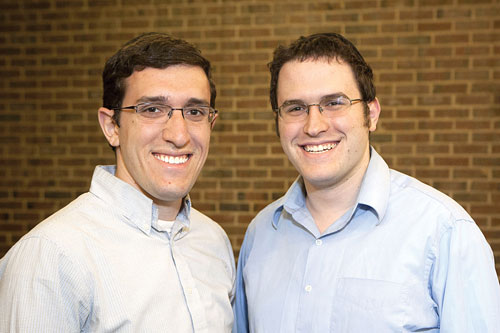.jpg)
Teaneck—Barry Cohen and Yosef Kornbluth of Teaneck have been selected to perform advanced undergraduate level research as part of the Henry Kressel Research Scholarship program. It was established six years ago by Dr. Henry Kressel, chairman of the YU Board of Trustees, managing director of Warburg Pincus LLC and a Yeshiva College graduate—to offer students the opportunity to craft a year-long intensive research project under direct supervision of university faculty.
The scholars will each receive a stipend of $6,000 for the year, along with appropriate research-support expenses. Following their research tenure, Kressel Scholars will be encouraged to share their work in professional and peer circles to stimulate a larger intellectual discussion on their chosen topic.
Cohen will coordinate his work with Dr. James Camara, visiting assistant professor of chemistry, as they investigate the “Development of Gallium Complexes with Weakened Gallium Halide Bonds for Use in Methane Functionalization.”
“One of the major sources of waste in the oil industry is the burning of natural gases above petroleum reserves to get to the oil below,” explained Cohen, who plans to pursue a doctoral degree. “The goal of my research is to design and synthesize a metal containing catalyst that will facilitate the conversion of methane, which is a gas under atmospheric conditions, into methanol, which is a liquid under atmospheric conditions and is therefore more economical to transport. My interest in this project stems from its high relevance to addressing the global energy crisis.”
Kornbluth will tackle “The Cascade of Failures Caused by Overload in Interdependent Networks” under the guidance of his mentor, Dr. Sergey Buldyrev, professor of physics. “Until now, there have been two popular models to study how networks, such as electrical grids or communication lines, have failed,” Kornbluth said. “One focuses on how sending too much traffic through a single bottleneck can cause the bottleneck to overload and fail, while the other observes how one network’s failures can affect another network. I plan on combining the two models in order to better predict and plan for these catastrophes.” Ultimately, Kornbluth hopes to pursue a doctoral degree in physics or engineering and work in industry to advance technology.








